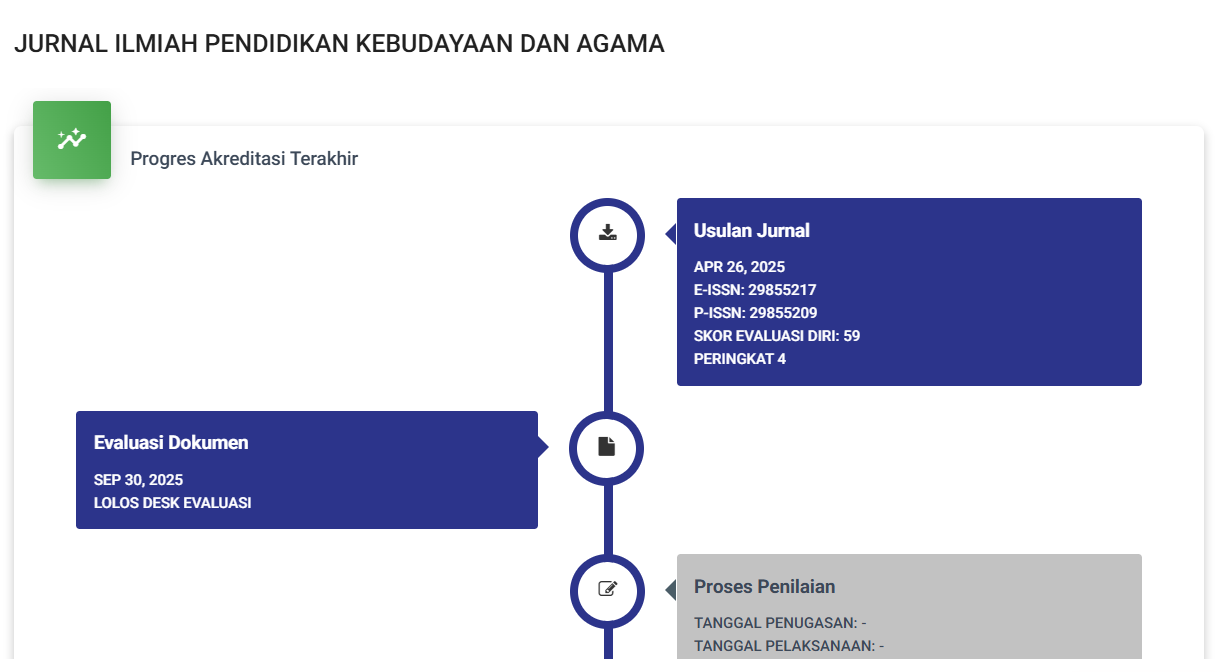PERKEMBANGAN MASA BAYI
DOI:
https://doi.org/10.59024/jipa.v2i1.496Keywords:
Baby Development, Physical Development, PsychologicalAbstract
Abstract. The baby's social emotional development must be a parent's main goal, because if social emotional development does not go well it will affect and hinder other developments such as psychomotor, emotional and other baby development. This research uses a method called critical review, which involves careful examination and evaluation of various sources of information, such as scientific journals, articles, and other media. The main goal of this approach is to improve readers' comprehension and interpretation skills in the field of early childhood development. Infancy is a time of rapid growth and change, infancy is a time of reduced dependency. The developmental tasks of infancy throughout the life span are, learning to eat solid food, learning to walk, learning to talk, learning to control the elimination of body waste, learning sexual differences and procedures, preparing to read, and learning to distinguish right from wrong, and starting to develop conscience. The development of patterns in the changes experienced by individuals since they were still in the womb over a certain life span, namely, weight, height, physical proportions, bones, muscles and fat, body shape, teeth, nervous system, and development of the sense organs. The psychological function of infancy is the period of formation of fundamental psychological patterns for eating, sleeping, and toileting, although the formation of these habits may not be complete by the end of infancy.
References
Ahmad Fuady. (2022). Perkembangan Psikologis Anak (B. L. Y. Idham Ghoirishah (ed.); Edisi Pert). PT Human Persona Indonesia.
Alfiansyah, M., & Utami, I. H. (2020). Analysis of Social Emotional Development in Infants Based on Psychological Studies. In Pendidikan Anak Usia Dini (Vol. 4).
Baiq Shofa Ilhami, R. F. (2022). Psikologi Perkembangan (Teori dan Stimulasi) (N. A. Y. Sandy Ramdhani (ed.); Edisi Digi). CV Jejak, Anggota Ikapi.
Dr. Khadijah, N. A. (2020). Perkembangan Fisik Motorik Anak UsiA Dini Teori dan Praktik (Lintang Novita (ed.); Edisi Pert). Kencana.
Fitriyah, L., Khalifatunnisa, K., Hasanah, U., Badriyah, N., Yasin, K. N. L., Melinda, K., & Suhada’, A. (2021). Socializing the Importance of Early Childhood Stimulation. Community Development Journal : Jurnal Pengabdian Masyarakat, 2(2), 475–486.
Herlinadiyaningsih, Y. L. (2022). Ilmu Kesehatan Anak (Arizal (ed.); Edisi Pert). Wawasan Ilmu.
Hurlock, E. B. (1980). Psikologi Perkembangan (Edisi Kelima). Erlangga.
Nur Irmayanti, Syatria Adymas Pranajaya, D. (2023). Psikologi Anak (W. N. Ramadhani (ed.); Edisi Pert). PT. Global Eksekutif Teknologi.
Rozita Yusniaty Lodo, D. (2023). Psikologi Anak (W. N. Ramadhani (ed.); Edisi Pert). PT. Global Eksekutif Teknologi.
Sukamti, E. R. (2018). Perkembangan Motorik (pertama). Uny Press.
Syamsul Bachri Thalib. (2010). Psikologi Pendidikan Berbasis Analisis Empiris Aplikatif (Irfan Fahmi (ed.); Edisi Pert). Kencana Prenada Media Group.
Umianita, D. (2018). Analysis of Life-Course Factors Influencing Growth and Development in Children under 3 Years Old of Early Marriage Women in Kediri. Journal of Maternal and Child Health, 2, 137.
Wahyuni, C. (2018). Panduan Lengkap Tumbuh Kembang Anak Usia 0-5 Tahun. Strada Press.
Yudo Dwiyono. (2021). Perkembangan Peserta Didik (Avinda Yuda Wati (ed.); Edisi Pert). CV Budi Utama.
Yulizawati, & Afrah, R. (2022). Pertumbuhan dan Perkembangan Bayi dan Balita. Indonesia Pustaka.
Downloads
Published
Issue
Section
License
Copyright (c) 2023 Anna Sari Hasibuan, Fina Nurhaliza, Bunga Sovia Erik

This work is licensed under a Creative Commons Attribution-ShareAlike 4.0 International License.










